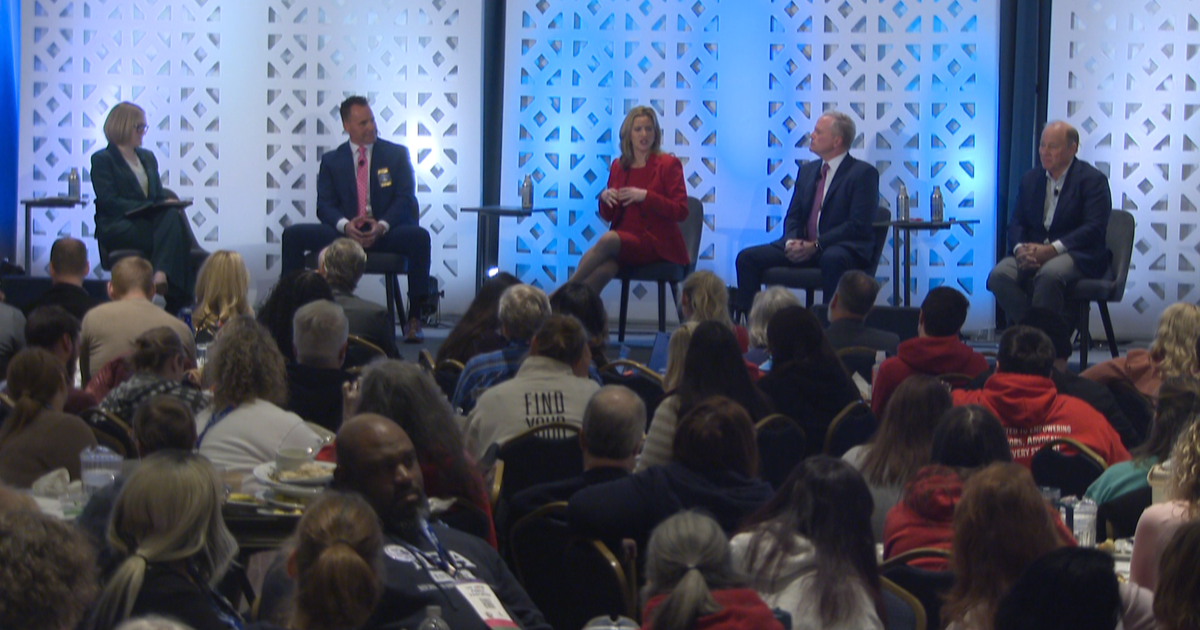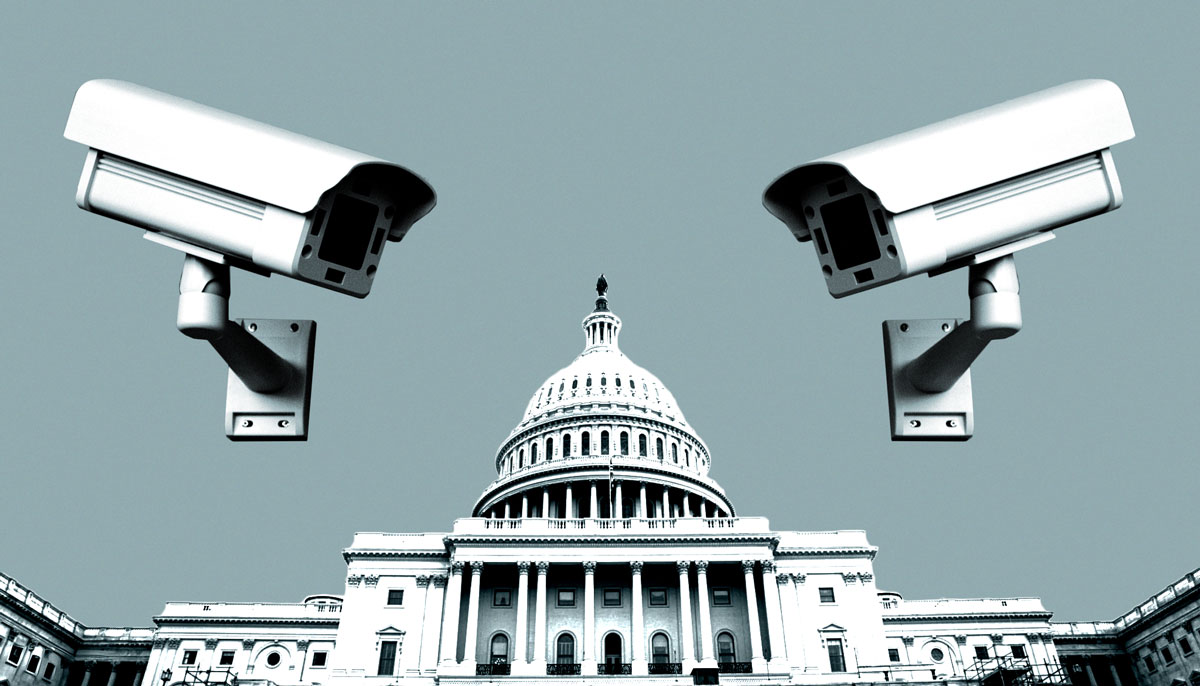National Security Adviser Tom Donilon on stepping down: "It's time"
After four and a half years of "working without a day off" in two 24/7 burnout jobs, White House National Security Adviser Tom Donilon will no longer have to wake the president in the middle of the night with news of some crisis.
"This was the appropriate time for me to finish up and move on to other things," said Donilon in a CBS News interview conducted at the conference table in his West Wing office.
To hear him tell it, he neither grew tired of the job - nor just tired.
"You can't grow tired of this job," he said, "It's endlessly interesting." But he also said it's "all-consuming." He doesn't dispute that it's a "killer job" with round-the-clock responsibilities.
"It's the principal foreign policy advisory and coordination job in the U.S. government," said Donilon. He's been national security adviser since November 2010, when he was promoted from the Deputy NSA post, upon the departure of retired Army Gen. James Jones.
Donilon calls it "a terrific job," "a vigorous job" and "the most satisfying job you can imagine," but one in which "there are no natural breaks."
At age 58, Donilon ends his tenure as national security adviser on Sunday. U.N. Ambassador Susan Rice takes over on Monday. It's for that reason that Donilon is not with President Obama in Africa. He thinks it's the first foreign trip of this presidency he hasn't done. His deputy is covering for him.
Instead he's giving Rice some on-the-job training before she takes over in earnest.
"I think it's the right decision," said Donilon of stepping down. "You have to know when it's time."
It's his third tour at the White House. He also served in the Carter and Clinton administrations and he's been on the job at this White House since day one of the Obama presidency. He also served as a foreign policy adviser to candidate Obama. Donilon feels it's been tough on his family. He has a wife and two teenage children. "It's time for me to concentrate on some other things as well."
Nevertheless, he says plaintively, "I'm gonna miss everything about my job." Even the calls he got in the middle of the night alerting him to some urgent development that might affect U.S. national security.
It was then that he had to decide whether to wake the president as well.
"It is always better to inform the president of an issue of note around the world - than not to," said Donilon.
And if it's a toss-up on whether to wake the president, he's inclined to make the call.
Donilon says he'd rather wake the president when it wasn't absolutely necessary, than be on the receiving end of a presidential question: "Why didn't I know this?"
- With national security picks, Obama rounds out 2nd term "dream team"
- Tom Donilon stepping down as Obama's national security adviser
On a related issue, Donilon is quick to dispute criticism that Mr. Obama was not adequately engaged in responding to the attack on American facilities in Benghazi last September.
He believes the president's detractors on this point have got it wrong.
"Yes, absolutely." He asserts the president was "completely engaged" on Benghazi, including meeting with the chairman of the Joint Chiefs and the secretary of defense, "during the course of the attacks."
Donilon knows that history is replete with standoffs and showdowns between the person in his job and secretaries of state and/or defense and/or other key members of the president's national security team.
"We've been able to avoid that," boasts Donilon. "And it is one of the things I'm most proud of."
The reason for no high-level friction, he said, is because "the president won't tolerate it."
Donilon said he considers it his responsibility to make sure that each top national security official has the chance "to make their views directly to the president, if they so wished."
"I think that's been a real hallmark of our time here," he said of the arrangement.
As for Donilon, he has had plenty of face time with the president. He said he "interacts" with the president four or five times a day. That includes the president's daily briefing on worldwide developments and situations that merit his attention. It's been Donilon's job to prepare it.
He said it takes him two-to-three hours a day to assemble the briefing which usually runs 30-to-40 minutes in length. It's his responsibility, he said, to make sure the briefing is "absolutely accurate" and covers "all the essentials."
And Mr. Obama recently made it clear he's been more than satisfied with Donilon's performance.
"Tom's work ethic is legendary," said the president June 5 in announcing that Donilon was stepping down and Rice would succeed him. The president said Donilon has the same "drive," "stamina," "enthusiasm" and "reverence" for serving in government as he did when starting out in the Carter White House at age 22.
"He has helped shape every single national security policy of my presidency: from forging a new national security strategy rooted in our economic strength here at home, to ending the war in Iraq."
The president also credits Donilon with overseeing the operation that led to the locating and killing of Osama bin Laden, and also helping to keep the transition on track in Afghanistan as the U.S. winds down it's engagement in the war there.
"Tom is that rare combination of the strategic and the tactical," said the president. "He has a strategic sense of where we need to go and he has a tactical sense of how to get there."
Donilon leaves his job feeling he has helped to restore American "power, prestige and authority in the world."
"That restoration was absolutely essential," he said.
He concedes there was insufficient progress on his watch on the Middle East peace process. He also cites new "security challenges" that have erupted out of the Arab Spring. "They're gonna present real challenges for us, going forward," he believes.
But on balance, he said, "I think we have really changed the face and footprint of the United States in the world."
Now he's looking to change the face and footprint of his life.
I asked if he wants to write a book. He was adamant in his response.
"I don't -- I don't - I don't - I don't -- I don't think I'm really thinking about a book at this point," he said.
Writing a book might be tough for Donilon since he hasn't kept a journal of his White House days. "I don't know when one would find the time in this job to keep a journal."
In his experience, there's just too much else on the plate of the national security adviser.
"There's an irreducible amount of work that needs to be done every day." He said the job keeps him busy from "the time the sun comes up until well after it goes down."
A book would let him reveal many stories of behind-the-scenes activities at the White House. That's why he said he has no plans to write one.
Any interest in an ambassadorial post? "Not ready."
Become a pundit, perhaps? "I don't know if punditry's in my future," he said, laughing.
Is the best part of your life over, I asked him.
"I hope not," he said.
Yet, when he turns over his desk to Rice, he knows there's plenty of unfinished business facing her, beginning with Syria.
"It's become an exceedingly difficult situation, exceedingly bloody and a tragic situation," said Donilon. "It's a desperate regime engaging in condemnable acts."
And starting Monday morning it'll be Rice's responsibility along with scores of other issues and situations.
Asked for the best advice he can give her: "Work hard and make sure the president has the best advice." Donilon said he thinks her job as U.N. Ambassador well prepares Rice for her new post as national security adviser.
And as he prepares for his last day on the job at the White House, Donilon is anxious to refute those who say the U.S. is in decline.
"I think that's manifestly not true." He portrays America as having "enduring strengths including its economy, its people, its universities, its energy future, its military strength, its demography, its geography."
He leaves his White House job in a decidedly optimistic frame of mind, believing the U.S. is "poised to lead in the 21st century" and "poised for a terrific future."
As for his future, Donilon plans to take some time off, do "some thinking and writing." But not a book.



